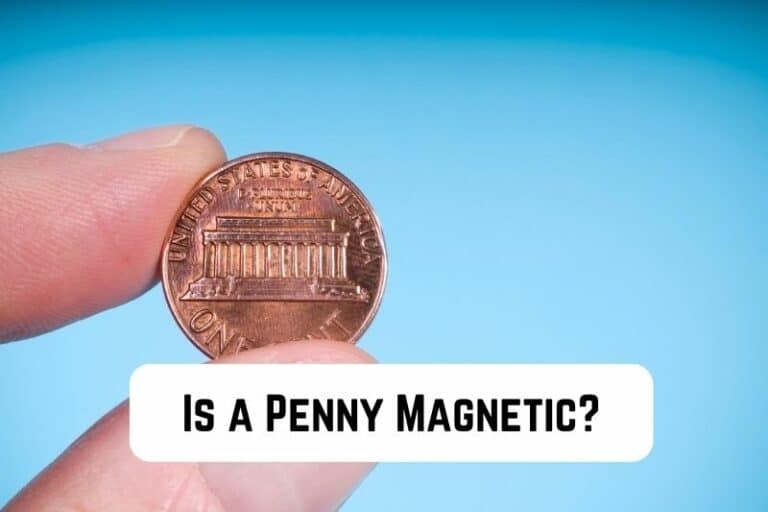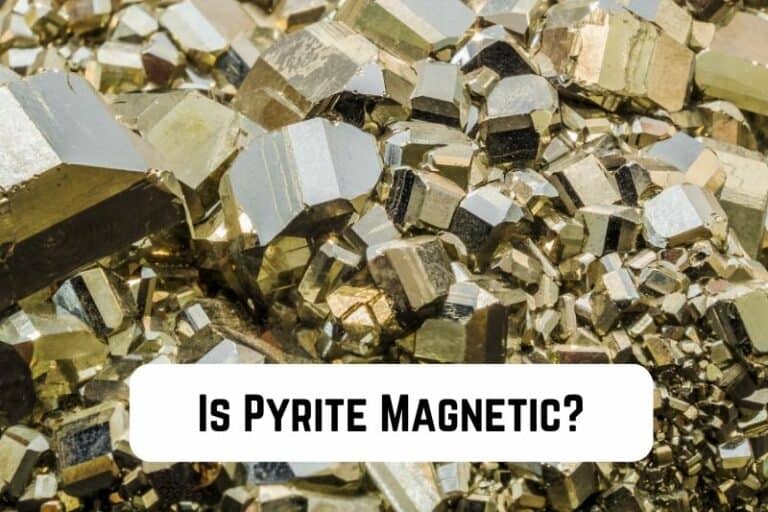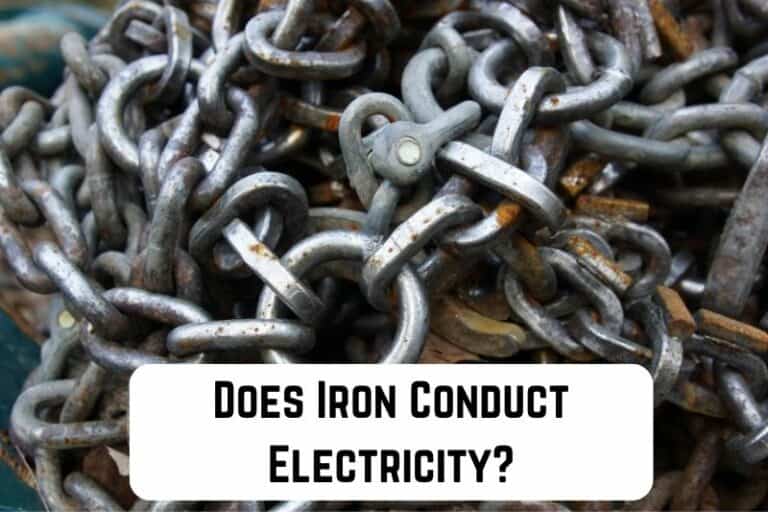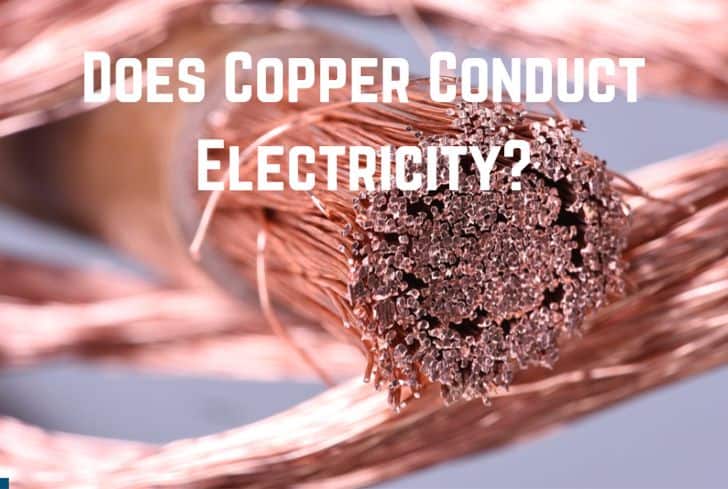Is Inconel Magnetic? (Properties & Uses)
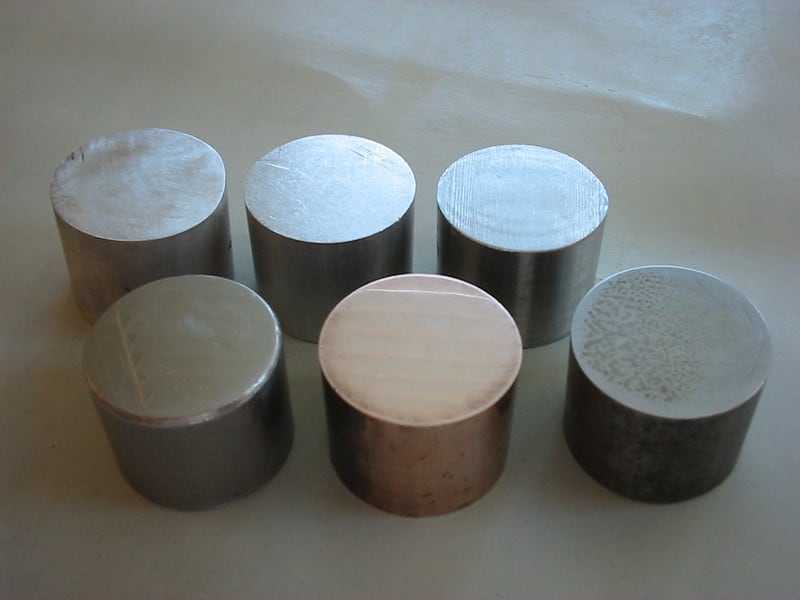
Industries like aerospace, marine, and oil & gas need metals that can create durable components. Because of this, the development of Inconel, a nickel-chromium alloy, signaled a revolution in these fields in the early years. The first turbojet engine was created using Inconel components as early as 1940. But what properties make Inconel so popular in these industries? Let’s begin with finding out.? Is Inconel magnetic?
We first define Inconel and explain its composition before answering the above question. We will then discuss whether Inconel is ferromagnetic and whether a magnet can stick to it. This article further clarifies whether Inconel 625 is magnetic and whether it is more durable than titanium. We conclude by highlighting the properties and uses of Inconel.
Read: Is Galena Magnetic? (Properties & Uses)
What is Inconel?
Inconel is a superalloy formed from several elements. Among the metals are nickel, iron, titanium, copper, and molybdenum. Inconel has a high strength, excellent weldability, and abrasion resistance. Due to its high service temperatures, extreme corrosion resistance, and high strength, Inconel can function in harsh environments depending on the alloy specifications.
The harsh environments include:
- Military applications,
- High-grade marine applications,
- Oil fields,
- Chemical processing reaction chambers,
- Polymer granule manufacture.
The International Nickel Company (Delaware and New York) was the first to create Inconel alloys in 1932.
Will a Magnet Stick to Inconel?
A magnet doesn’t stick to Inconel. It’s interesting because Inconel comprises iron, nickel, and chromium. Iron and nickel are magnetic, while chromium is paramagnetic above room temperature. Most of the other alloying components, however, are not magnetic. Inconel’s nonmagnetic characteristics supersede iron and nickel’s magnetic properties.
Most Inconel alloys have magnetic properties that depend on their components, even though they are not naturally magnetic. A magnet stick won’t stick to Inconel, even if you can detect a faint magnetic signal using tools like a Gaussmeter or an electronic compass. Most Inconel alloys lose their magnetic properties as temperature increases.
Since nickel makes up a significant portion of Inconel, some Inconel alloys display magnetic properties. However, substances like carbon weaken the magnetic properties of nickel. Inconel’s magnetic properties will further reduce if rubbed against another alloy or the temperature changes.
What is Inconel Made of?
Inconel refers to several alloys with a high nickel concentration. Therefore, Inconel is not a single alloy but a set comprising various metals with various properties. Chromium is the second most common element in all Inconel alloys. The third component is iron, which makes up a certain percentage of every Inconel alloy.
Other metals that might be present in different Inconel alloys include cobalt, copper, manganese, niobium, tantalum, titanium, carbon, and molybdenum. There are seven further varieties of Inconel alloys in addition to Incoloy® and Hastelloy®. In the table below, we provide an overview.
| Inconel Type | Description |
| Inconel 600 | -Original alloy. |
| -Corrosion and heat resistance at high temperatures. | |
| Inconel 601 | -Excellent high-temperature oxidation resistance. |
| -High carburization resistance. | |
| Inconel 625 | -It is more corrosion-resistant than Inconel 600 and 601. |
| -It also resists creep at low temperatures. | |
| Inconel 718 | -Well suited to hardening precipitation. |
| -Good toughness and strength. | |
| Inconel X-750 | -Has excellent low molding and temperature performance. |
| -Provides increased corrosion and oxidation resistance. | |
| Inconel 690 | -Mainly used in nitric acid environments, nuclear waste treatment plants, and steam generators due to its excellent resistance to chloride, high temperature/pressure water stress corrosion, and these properties. |
| Inconel 792 | -Has a higher-than-average aluminum content, enhancing its corrosion resistance at high temperatures. |
Is Inconel 625 Magnetic?
Inconel 625 is non-magnetic. It comprises 58% nickel, 8%–10% iron, 20–23% chromium, 3%–5% molybdenum, 5% manganese, 1.5% niobium, and trace amounts of silicon and sulfur. That iron percentage is not considered sufficient to make Inconel 625 magnetic. Inconel 625’s iron component does not exhibit enough paramagnetic behavior to be classified as magnetic. Inconel 625 is hence diamagnetic.
Inconel 625 can function in various temperatures, from cryogenics to 1796°F (980°C). Both at low and high temperatures, it has good mechanical properties. Therefore, Inconel 625 is suitable for heat exchangers, furnace hardware, and jet engines.
Additionally, Inconel 625 exhibits outstanding corrosion resistance in oxidizing and reducing conditions. These properties make Inconel 625 attractive across various industries, including chemical processing plants, oil refineries, and aerospace engineering.
Is Inconel Ferromagnetic?
Inconel is not magnetic, not at all. However, Inconel 600, one of its alloys, is ferromagnetic along the boundaries where chromium has been depleted and paramagnetic at room temperature. Chromium depletion, which results from sensitization, eliminates chromium atoms from Inconel 600’s grain boundaries. Chromium makes up 14–17% of Inconel 600, making it the second-highest component after nickel.
Iron is referred to as ferro. Certain elements, including cobalt, nickel, iron, and their alloys, exhibit ferromagnetism, an interesting property. These substances develop permanent magnetism. Atomic dipoles in ferromagnetic materials align in the same direction without an external magnetizing force.
We highlight the following characteristics of ferromagnetic materials:
- Domains of persistent dipole moments exist in the atoms of ferromagnetic materials.
- Atomic dipoles line up parallel to the direction of the surrounding magnetic field.
- They have a strong magnetic dipole moment that faces the magnetizing field.
- Huge magnetization changes in strength depending on the magnetic field.
- A ferromagnetic substance loses its magnetic characteristics when it is liquified due to the high temperatures involved. However, cooling makes the substance ferromagnetic once more.
Is Inconel Stronger Than Titanium?
Yes, Inconel is stronger than titanium. While titanium lacks chromium, which enhances strength, Inconel does. Inconel 718 has a tensile strength of 1,375 MPa, while Titanium-6AI-4V alloy has a tensile strength of around 1,170 MPa. The lowest Inconel alloy and the type of titanium alloy with the maximum strength were compared in terms of tensile strength.
Although titanium is lightweight, it has exceptional tensile strength and corrosion resistance. It doesn’t expand or contract significantly when exposed to heat or cold since it has a low thermal expansion coefficient. It is ideal for precision tasks like aircraft parts or surgical implants.
Interestingly, while Inconel is stronger than titanium, in higher temperatures, titanium becomes stronger.
Properties of Inconel
Inconel is a set of alloys. Therefore, it has several properties that make it a unique metal. In most industries, Inconel is thus considered a superalloy. Iron, nickel, and chromium are the dominating components in alloys and, to a large extent, determine Inconel’s properties.
Physical Properties
- Inconel can withstand temperatures up to 2000°F(1093°C) without becoming brittle or losing strength.
- Because it contains nickel, Inconel is a superb corrosion-resistant metal. That means it is unlikely that the surface of Inconel will rust or oxidize.
- Since they frequently crack, most Inconel alloys are challenging to weld. However, using automated welding equipment, Inconel 625 and 718 produce outstanding results.
- Most Inconel alloys have a melting point of 1400°C (2552°F).
- It is a poor electrical conductor, especially compared to other metals. Its conductivity is always favorable when metal is as close to being pure as possible or with the least amount of alloying.
Chemical Properties
- Strong acids can cause Inconel to react, releasing gaseous acid breakdown products.
- Oxides of metals like manganese, iron, chromium, and nickel are created during heating.
Read: Is Iridium Magnetic? (Properties & Uses)
Uses of Inconel
Inconel can withstand the most challenging conditions, as we previously stated. It has a very high-temperature tolerance compared to other alloys like stainless steel.
As a result, Inconel has a wide range of uses as a super alloy, which we highlight in the table below.
| Industry | Uses |
| Aerospace (Inconel 625 and 718). | -Makes several jet engine components such as fuel nozzles, exhaust liners, afterburner rings, etc. |
| -Used in space exploration vessels. | |
| -Chemical rocket combustion chambers. | |
| -Heat-resistant turbine seals. | |
| Nuclear ( Inconel 600 and 690). | -Manufacturing of nuclear-pressurized water reactors. |
| -High and ultra-high heat exchangers, reactors, pipes, and other components. | |
| -Nuclear reactor internal structures and fuel rod containers. | |
| -Nuclear reactor coolant system. | |
| Oil and Gas extraction (625 and 718) | -Pipe and processing systems for extracting and transporting liquified natural gas. |
| -Gas turbine blades. | |
| -Gas surface safety valves. | |
| -Flowlines for subsea walls. | |
| Medical | -Surgical materials, tools, and equipment. |
| -Orthopedic implants ( hip joints, knee joints, and other joint replacement). | |
| Automotive (625 and X- 725) | -Exhaust systems of high-performance and supercars. |
| -Making ignition systems, electrical switchgear, safety devices, and sensors | |
| -Exhaust systems of high-powered motorcycles. | |
| -Engine valve springs. | |
| Marine | -Manufacture of propeller blades, propulsion motors, and wire ropes. |
| -Making sheathing for undersea communication cables. | |
| -Downhole equipment, high-strength fasteners, and platform riser hangers. | |
| -Submarine quick disconnect fittings. |
Conclusion
Several metals make up Inconel. Except for Inconel 600, all Inconel alloys are diamagnetic. Inconel, an alloy with chromium, performs better than titanium in terms of which material is stronger.
Inconel is highly resistant to oxidation, high temperatures, and corrosion. Because of its unique qualities, Inconel is used in many industrial applications.
Frequently Asked Questions
Does Inconel 625 rust in water?
In water, Inconel 625 does not rust. Because of this, it’s an ideal choice for applications involving seawater. It possesses high tensile strength and corrosion fatigue strength and is resistant to crevice corrosion. Nickel is highly concentrated in Inconel 625, resisting chloride-based stress attacks. As a result, Inconel 625 does not corrode in freshwater, seawater, alkaline environments, or neutral salts.
Why is Inconel hard to cut?
Due to its rapid work-hardening, Inconel is hard to cut. As you work with Inconel, it gets stronger and harder. It is difficult to obtain the desired shape because of this feature.


